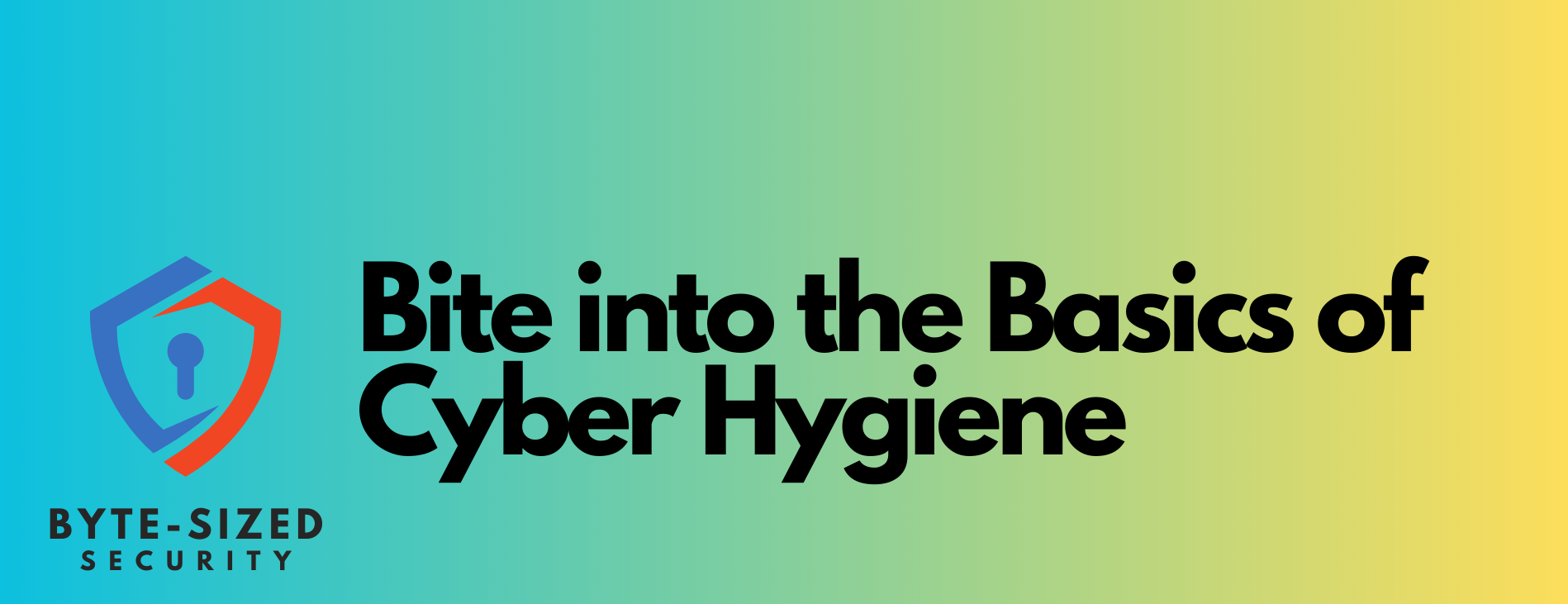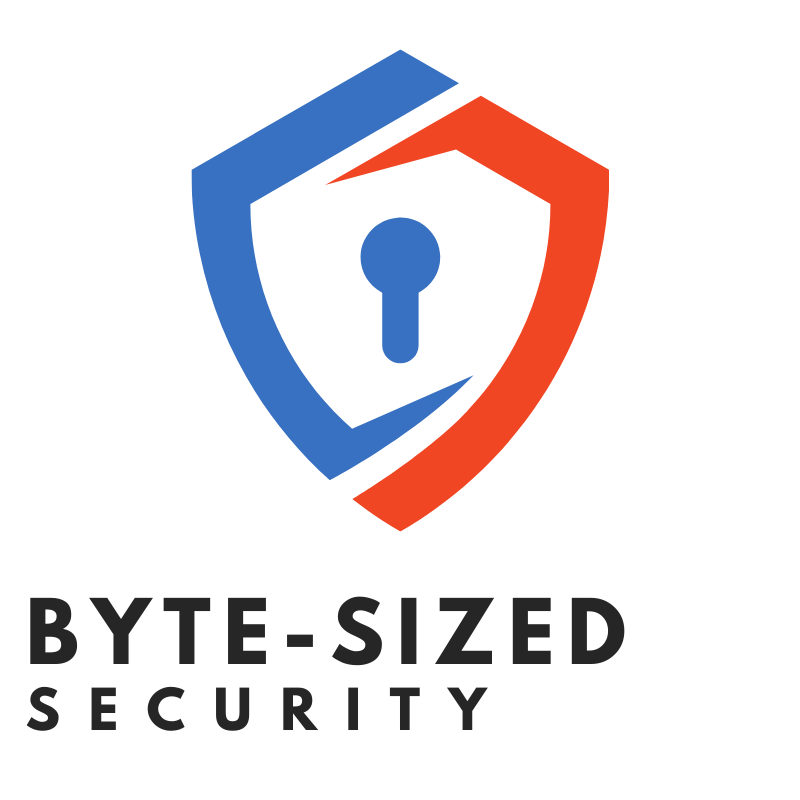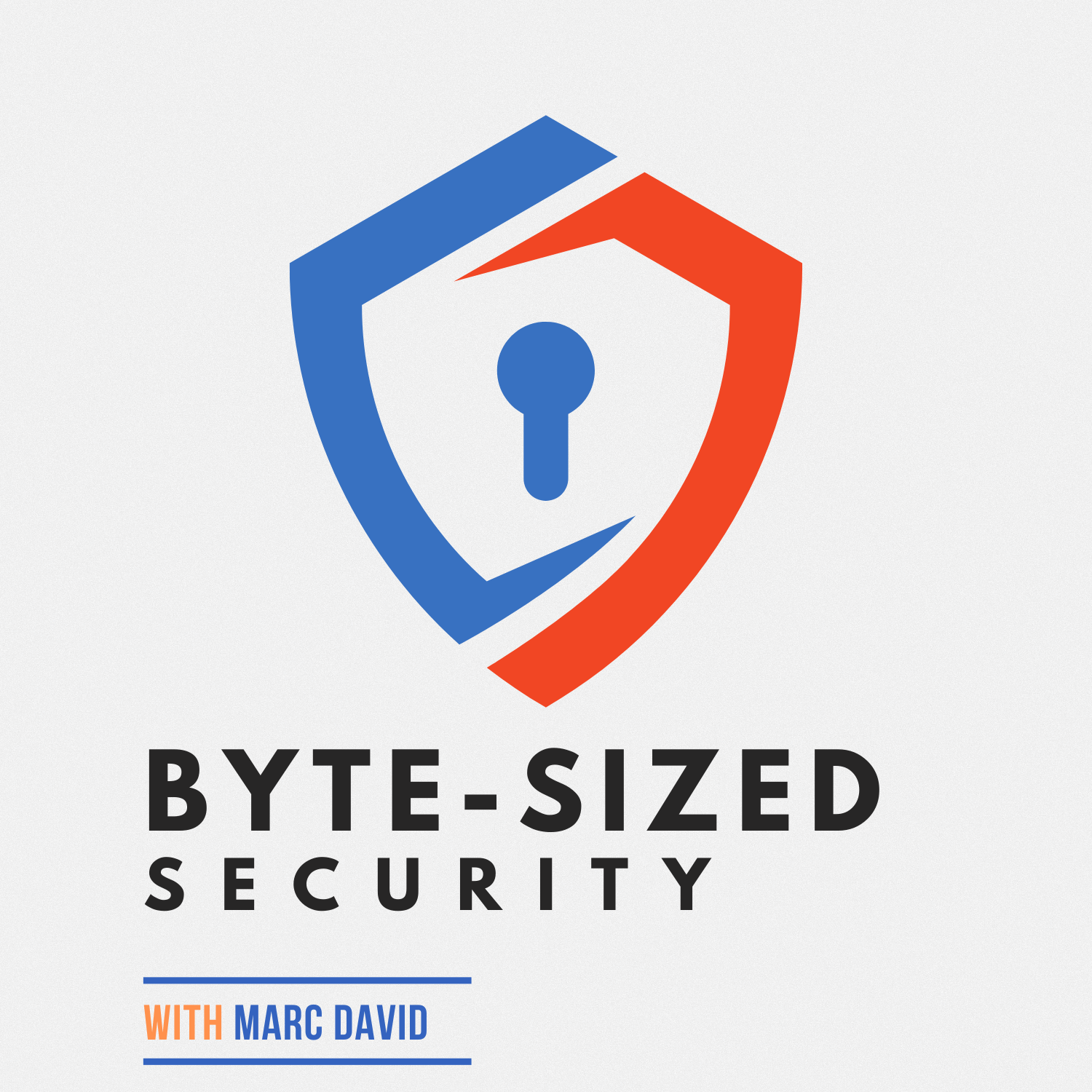Ep7: Securing Your SmartPhone
In this episode, host Marc David discusses mobile security threats and best practices with expert Savannah Hill including:
- Using strong screen locks like fingerprints or facial recognition to prevent unauthorized access
- Backing up important data like contacts and photos to the cloud or external drives
- Only installing apps from official app stores and limiting unnecessary permissions
- Keeping devices updated and using mobile antivirus software as an added precaution
- Enabling private browsing and VPNs for secure connections on public WiFi
- Preparing for lost devices with remote wipe capabilities and location tracking
- Setting lock screen contact info in case an honest finder returns your phone
- Running advanced tools like VPNs and mobile device management for corporate security
For full episode recaps and more cybersecurity tips, visit bytesizedsecurity.show or subscribe on your favorite podcast app. See you next time!
---
I do hope you enjoyed this episode of the podcast. Here's some helpful resources including any sites that were mentioned in this episode.
--
Sites Mentioned in this Episode
- How to Secure Your Mobile Device: 8 Tips
- Mobile Device Security Articles | Norton Blog
- Back up or restore data on your Android device - Android Help
- Update your iPhone or iPad - Apple Support
- How To Protect Your Phone From Hackers | Consumer Advice - Tips from the FTC on how to protect your mobile phone.
- Mobile Security Tip Card and Recommendations | CISA
--
Find subscriber links on my site, add to your podcast player, or listen on the web players on my site:
--
Support this Podcast with a Tip:
Transcript
Welcome back to another edition of Byte Sized Security, your source
:for bite-sized cybersecurity lessons.
:I'm your host Marc David, and with me today I have mobile
:security expert Savannah Hill.
:Our smartphones contain massive amounts of personal data and access,
:making mobile security critical.
:Savannah is joining me to provide tangible tips on keeping your mobile
:devices safe from hackers, malware, data theft and unauthorized access.
:Whether you use an iPhone or Android, you’ll walk away with actions you
:can take to boost your mobile safety.
:Savannah, so great to have you here.
:Can you start by giving us an overview of the major mobile security
:risks smartphone users face today?
Carla:Happy to be here!
Carla:Mobile devices like smartphones and tablets have become tempting targets
Carla:for cybercriminals because of all the sensitive information they contain - think
Carla:contacts, photos, messages, app data, and access to your online accounts.
Carla:Two major risks are malware infections that can steal data, and thieves cracking
Carla:into devices if they’re lost or stolen.
Carla:But with some reasonable precautions, mobile users can
Carla:greatly reduce their exposure.
:Excellent context, let’s start walking through some key
:actions people can take, beginning with device access controls.
:What role do locks and biometrics play in mobile security?
Carla:Absolutely, restricting physical access is crucial.
Carla:I always recommend using the strongest screen lock available
Carla:for your device, rather than no lock or just swipe patterns.
Carla:For most modern smartphones, this means enabling a fingerprint reader or facial
Carla:recognition for quick, secure unlocking.
Carla:Strong passwords or longer numeric PINs also work if biometrics aren’t an option.
Carla:The lock makes it vastly harder for anyone who gets hold of
Carla:your device to access the data.
:What are your thoughts on users backing up their mobile
:data like contacts and photos?
:Does that play a role in the security equation?
Carla:Backing up your mobile data is critical, for both security and having a
Carla:redundancy if devices fail or get lost.
Carla:I suggest regularly backing up photos, contacts, documents and
Carla:anything valuable to cloud storage like iCloud or Google Drive.
Carla:You can also back up locally to a computer or external drive using
Carla:iTunes or Android file transfer.
Carla:This protects all your info if your phone is damaged, lost or wiped.
:That’s an excellent habit I need to get better about myself.
:Let’s talk about malware next, what steps can mobile users take to avoid infections?
Carla:Malware on mobile largely spreads through untrustworthy app
Carla:downloads, just like on computers.
Carla:So I advise installing apps only from the official Apple and Google app stores,
Carla:where there is more stringent vetting.
Carla:Avoid “sideloading” from unverified sources, which is riskier.
Carla:Also only grant app permissions to access contacts, location, as truly needed.
Carla:And keep your device OS and apps up-to-date, since updates
Carla:often patch security flaws.
Carla:You can enable auto-updates for your phone and I strongly recommend you do that.
:What about using mobile antivirus software as an additional precaution?
:Is that overkill or recommended?
Carla:Mobile antivirus can provide an added layer of protection, especially
Carla:for Android users since Google Play isn’t as tightly vetted as Apple’s App Store.
Carla:Look for highly rated options like Malwarebytes, AVG Antivirus, and Norton
Carla:that can scan for malware and risky apps.
Carla:But antivirus shouldn’t replace precautions like safe app downloads.
Carla:Think of it as supplemental for those wanting maximum mobile protection.
:Let’s shift to safe web browsing.
:What risks exist on mobile, and how can we browse more securely?
Carla:Mobile browsers pose many of the same risks as desktop - malicious sites,
Carla:phishing attacks, unsecured connections.
Carla:I’d recommend deleting unneeded browser cookies and history routinely
Carla:to wipe potentially cached malware.
Carla:Use the private or incognito browsing mode when accessing sensitive
Carla:sites, like banking, to keep that activity out of your main browser.
Carla:And when on public Wi Fi, use a trusted VPN app to encrypt your
Carla:connection and prevent snooping.
:What about the risk of mobile devices getting physically lost or stolen?
:How can users prepare for that possibility?
Carla:That’s always a concern with small, portable devices.
Carla:Two things I recommend are enabling remote wipe capabilities, and
Carla:setting up device location tracking.
Carla:Remote wipe allows you to securely erase all data if a device is lost.
Carla:And location tracking apps like Find My iPhone or Android Device Manager
Carla:let you pinpoint a missing phone.
Carla:Also set a lock screen message with your contact details such as email or a
Carla:phone number but not your home address, so an honest finder can return it.
:For users really serious about mobile security, are there any advanced
:steps you recommend beyond the basics?
Carla:A few additional protections come to mind, like setting up a VPN
Carla:for all mobile traffic to encrypt it.
Carla:For rooted Android users, running a mobile security suite like AVG Zen
Carla:provides advanced malware scanning.
Carla:And enterprise mobile management tools from vendors like VMware offer robust
Carla:security controls for corporate devices.
Carla:But for most mobile users, the steps we’ve covered like strong locks, safe browsing
Carla:and backups provide excellent security.
:This has been an extremely helpful mobile bite sized security
:mini class for our listeners.
:Any final words of wisdom before we wrap up?
Carla:I would just remind people that consistent vigilance is key.
Carla:Revisit your security protections periodically as new risks emerge,
Carla:and keep device OS and apps updated.
Carla:And of course, contact mobile providers immediately if
Carla:devices are lost or compromised.
:Outstanding tips, thank you for sharing your mobile security insights!
Carla:My pleasure, thanks for having me!
:That concludes this Byte Sized Security edition focused on keeping your
:smartphones and tablets more secure.
:Enable strong locks, limit app permissions, use antivirus judiciously,
:browse safely, and back up your data.
:Take the time to implement mobile safeguards, and you’ll reap the
:benefits of greater online safety.
:We’ll see you next time!





